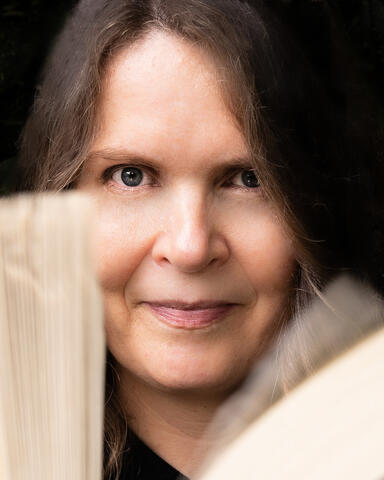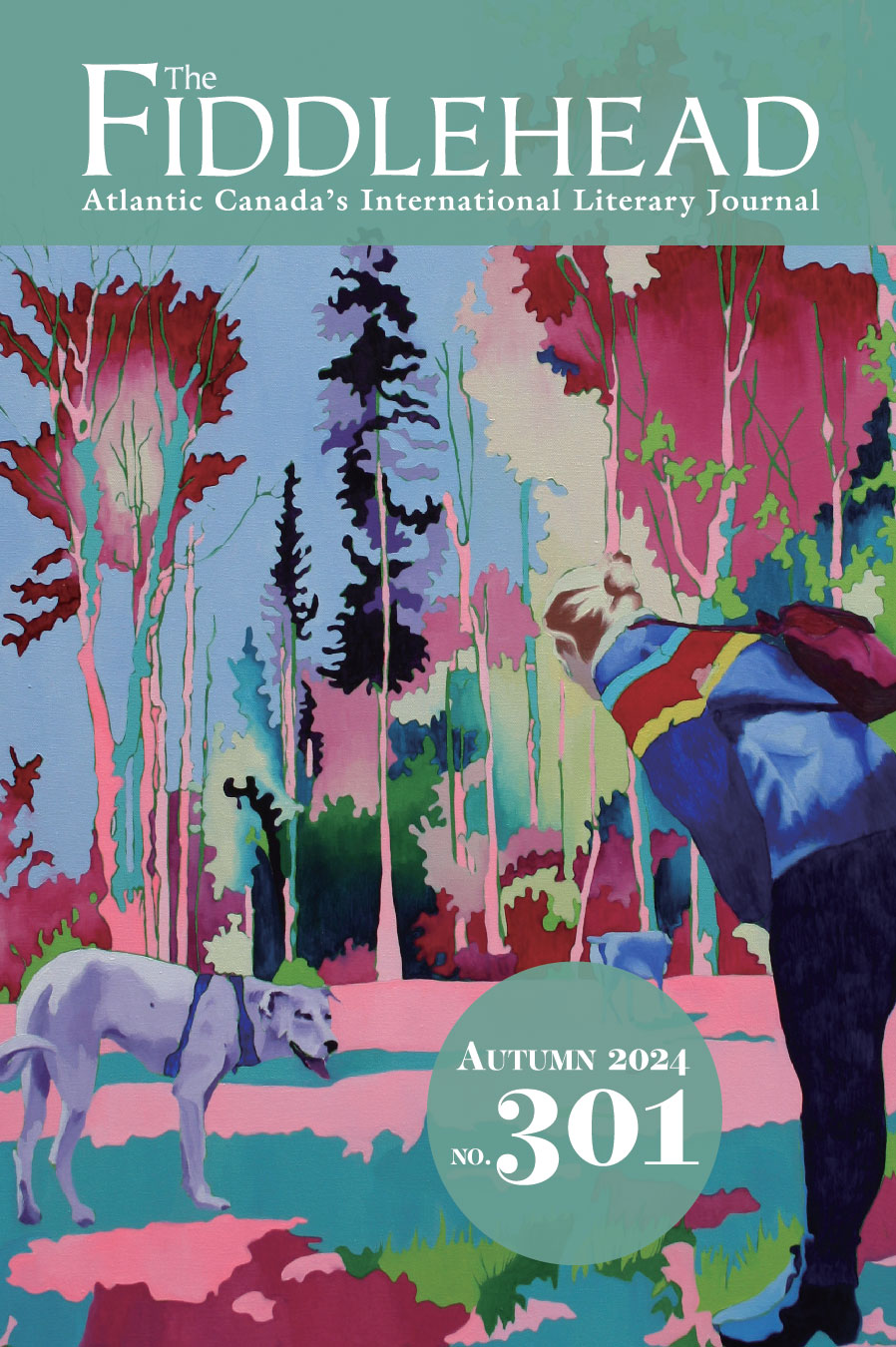
Editorial Assistant Miriam Richer Interviews Petra Chambers whose three poems appear in Issue 301 (Autumn 2024)
Miriam Richer: All three of your poems, in one sense or another, are about the speaker’s relationship to the past—revisiting a childhood home, reminiscing about adolescence, identifying with a rescue animal’s inscrutable history. How does the passage of time figure into your poetry?
Petra Chambers: I love thinking about time.
We’re always embedded in the present moment, but the present is remarkably challenging to inhabit.
As a species we’re forgetful. Collectively, we have a hard time learning from the past, but as individuals it’s comparatively easy for us to reflect and evolve. Story helps us learn from the experiences of others. I want my poems to tell a story because I adore stories, and also because I’m interested in the developmental potential of time.
MR: I love your use of mythical imagery: chicken-legged houses, cats descended from dragons, warrior priestesses. You juxtapose these images with the quotidian so effectively. Could you speak a little more to your personal pantheon of imagery: where it originates from, and what it means to you?
PC: Humans have always engaged with mythic imagery. Mythic interpretations have been dismissed by the rationalist worldview, but I want to include everything: the mythic, the scientific, and the mundane. Treating the world like a collection of inert resources has caused many of the intractable problems we now face as a species, and I think a revision of worldview is part of the solution.
There are social agreements about what reality is and isn't that are culturally bound. The empirical tradition includes agreements that I find confining and that are harmful to people who perceive more (or differently). I like to poke at those agreements in my writing.
MR: There’s a vibrant wildness to your poems; a sense of encroaching nature (both within and without). Is this tension something you’re conscious of?
PC: Definitely. I love the plants that grow in the cracks of sidewalks, and how quickly nature takes over when humans stop interfering. We can perceive this encroachment as entropy—if we see our human-built environments as a desired steady state—or it’s opposite: not a breakdown, but a continual regeneration.
I’ve just started reading Kate J. Neville's book of essays Going to Seed. In the introduction, she writes about some mice that won’t stop building nests in her cabin, and how when she reread Virginia Woolf’s To the Lighthouse, she noticed that Woolf also writes about a house being reclaimed by nature. Seasonally abandoned by humans, Woolf’s house is physically degrading, but overtaken by toads, rats and tortoiseshell butterflies. It's full of life. Wildness is everywhere.
MR: Your rhymes are so subtle! It was only in reading your poems aloud that I really noticed them. How do you conceive of the relationship between the visual and the aural when it comes to line breaks and rhyme placements?
PC: I read drafts aloud, ask my laptop to read them to me, and take them into the forest to read them. I play with line breaks, cull and polish. Then, I set pieces aside for awhile so I can see and hear them anew. It’s a weird, obsessive torment.
MR: Your poem titles are so simple yet incisive; they each shed that little bit of extra light on their subjects. It’s a difficult art, finding the right title for a piece. Do you have any rules of thumb?
PC: I’m fairly new to all this, so nothing has ossified for me yet. I start with a working title, and it evolves with the piece.
Intemperate is one of the poems in this collection. In choosing that title, I considered all the meanings of the component words: temperate, temper, and temp. For example, ‘temperate’ can mean a moderate climate, like we have here on the west coast, or being emotionally calm and controlled. Being emotionally calm and controlled is pretty much the definition of cool, which is what the teenagers in the poem are trying to be. To ‘temper’ is to subject something to an extreme process that causes a transformation, resulting in toughness. Like a rite of passage. But, of course, the teenagers in the poem, despite their attempts to be tough and cool, are squishy bewildered humans looking for love and comfort, like the rest of us. ‘Temp’ can mean temporary, and also evokes the varied and fascinating meanings of the word ‘temporal’. ‘Intemperate’ can mean extreme conditions, a lack of emotional control, and drunkenness. I thought that was an evocative title for a poem that touches all of those themes.
Petra Chambers (she/her) lives in the traditional territory of the Pentlatch people in the Salish Sea. She writes poems, creative nonfiction, and fiction-ish hybrid forms. Her work has been published by PRISM International, Queens Quarterly, CV2, and Prairie Fire. Her first poem was nominated for a 2025 Pushcart Prize.
You can find Patra Chambers' poetry in Issue 301 Autumn 2024. Order the issue now:
Order Issue 301 - Autumn 2024 (Canadian Addresses)
Order Issue 301 - Autumn 2024 (International Addresses)











